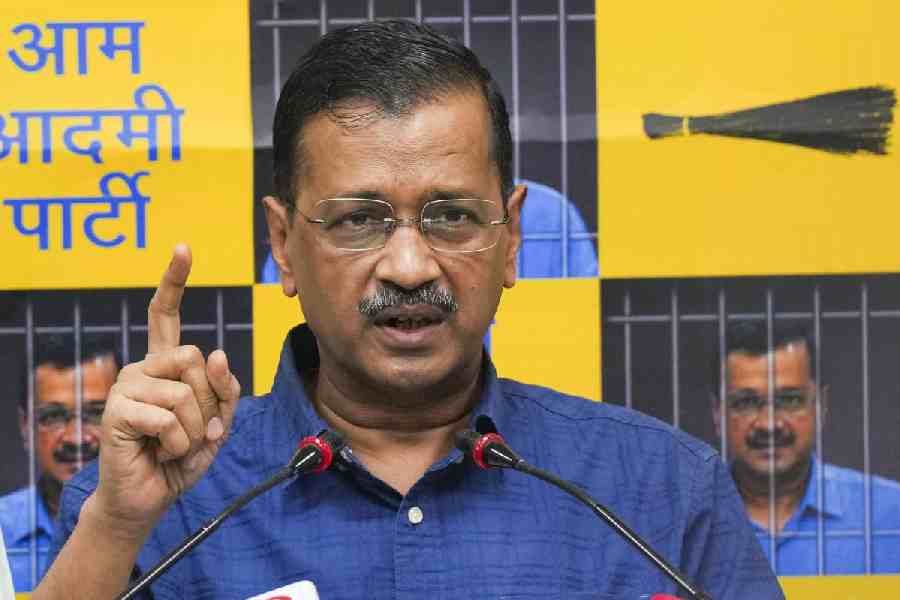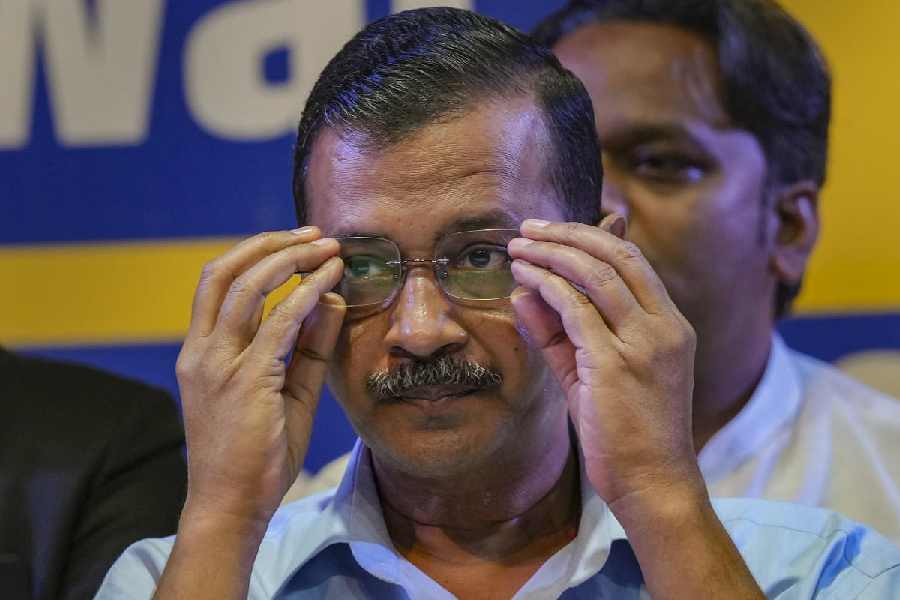Embattled Chief Minister Arvind Kejriwal has moved the Supreme Court against the Delhi High Court's interim stay on a trial court's order granting him bail in a money laundering case linked to the alleged excise scam.
One of the lawyers of the chief minister said that they will be seeking urgent listing of the petition on Monday.
The high court on Friday paused the Kejriwal's release after the trial court granted him bail on June 20.
The Aam Aadmi Party (AAP) national convener, who was arrested by the Enforcement Directorate (ED) on March 21, could have walked out of Tihar jail on Friday had the high court not granted the interim stay relief to the federal anti-money laundering agency.
"Till the pronouncement of this order, the operation of the impugned order shall remain stayed," a vacation bench of the high court had said and asked the parties to file written submissions by June 24.
The high court had listed the plea for hearing on July 10.
The court had said it was reserving the order for two-three days as it wanted to go through the entire case records.
It also issued a notice to Kejriwal seeking his response to the ED's plea challenging the trial court's June 20 order by which he was granted bail.
Additional Solicitor General (ASG) S V Raju, appearing for the ED in the high court, had contended that the trial court’s order was “perverse”, “one-sided” and “wrong-sided” and that the findings were based on irrelevant facts. The relevant facts, he claimed, were not considered by the special judge.
Seeking a stay on the trial court’s order, Raju had contended that the ED was not given adequate opportunity to argue its case.
The ED’s application for stay was vehemently opposed by senior advocates Abhishek Singhvi and Vikram Chaudhari, representing Kejriwal. They had submitted that Article 21 (protection of life and personal liberty) of the Constitution does not exist for the ED for which the liberty of a person figured low in priority.
Section 45 of the Prevention of Money Laundering Act (PMLA) says an opportunity must be granted to the public prosecutor to present his case but that opportunity was not granted to me, Raju had contended.
He had said the trial court did not even look at his reply on the ground that it was bulky and claimed that the trial court came to a conclusion that there was malafide on ED’s part after considering wrong facts and wrong dates.
Singhvi had submitted that the ED argued for three hours and 45 minutes before the trial judge.
In its bail order, the trial court had held that prima facie, Kejriwal's guilt was yet to be established and that the ED had failed to furnish direct evidence linking him to the proceeds of crime in the money laundering case.
The excise policy was scrapped in 2022 after the Delhi lieutenant governor ordered a CBI probe into alleged irregularities and corruption involving its formulation and execution.
According to the ED and the Central Bureau of Investigation (CBI), irregularities were committed while modifying the policy and undue favours extended to the licence holders.
Except for the headline, this story has not been edited by The Telegraph Online staff and has been published from a syndicated feed.











